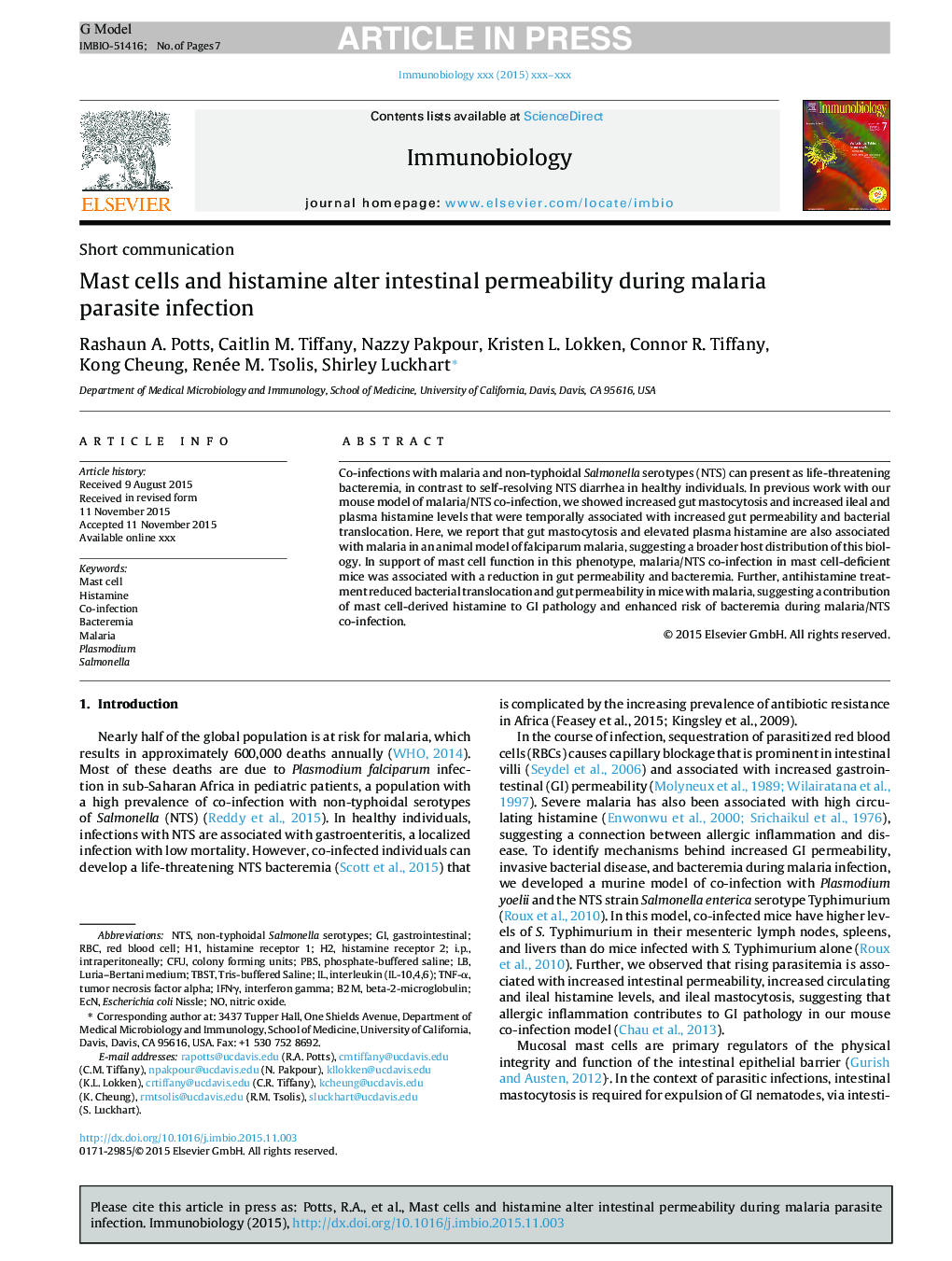| کد مقاله | کد نشریه | سال انتشار | مقاله انگلیسی | نسخه تمام متن |
|---|---|---|---|---|
| 10940813 | 1095513 | 2016 | 7 صفحه PDF | دانلود رایگان |
عنوان انگلیسی مقاله ISI
Mast cells and histamine alter intestinal permeability during malaria parasite infection
ترجمه فارسی عنوان
سلولهای مشت و هیستامین موجب نفوذ پذیری روده در عفونت انگل مالاریا می شوند
دانلود مقاله + سفارش ترجمه
دانلود مقاله ISI انگلیسی
رایگان برای ایرانیان
کلمات کلیدی
IFNγPBSCFUTBSTNTSECNRBCi.p.Bacteremia - باکتریمیBeta-2-microglobulin - بتا-2-میکروگلوبولینTris-buffered saline - تریس بافر شورtumor necrosis factor alpha - تومور نکروز عامل آلفاIntraperitoneally - داخل صفاقیGastrointestinal - دستگاه گوارشLuria–Bertani medium - رسانه Luria-BertaniSalmonella - سالمونلاCo-infection - عفونت مشترکTNF-α - فاکتور نکروز توموری آلفاMast cell - ماستسلMalaria - مالاریاPhosphate-buffered saline - محلول نمک فسفات با خاصیت بافریNitric oxide - نیتریک اکسیدHistamine - هیستامینcolony forming units - واحدهای تشکیل دهنده کلنیPlasmodium - پلاسمودیم، انگل مالاریاInterferon gamma - گاما اینترفرونred blood cell - گلبول قرمز، اریتروسیتhistamine receptor 1 - گیرنده هیستامین 1Histamine receptor 2 - گیرنده هیستامین 2
موضوعات مرتبط
علوم زیستی و بیوفناوری
بیوشیمی، ژنتیک و زیست شناسی مولکولی
بیولوژی سلول
چکیده انگلیسی
Co-infections with malaria and non-typhoidal Salmonella serotypes (NTS) can present as life-threatening bacteremia, in contrast to self-resolving NTS diarrhea in healthy individuals. In previous work with our mouse model of malaria/NTS co-infection, we showed increased gut mastocytosis and increased ileal and plasma histamine levels that were temporally associated with increased gut permeability and bacterial translocation. Here, we report that gut mastocytosis and elevated plasma histamine are also associated with malaria in an animal model of falciparum malaria, suggesting a broader host distribution of this biology. In support of mast cell function in this phenotype, malaria/NTS co-infection in mast cell-deficient mice was associated with a reduction in gut permeability and bacteremia. Further, antihistamine treatment reduced bacterial translocation and gut permeability in mice with malaria, suggesting a contribution of mast cell-derived histamine to GI pathology and enhanced risk of bacteremia during malaria/NTS co-infection.
ناشر
Database: Elsevier - ScienceDirect (ساینس دایرکت)
Journal: Immunobiology - Volume 221, Issue 3, March 2016, Pages 468-474
Journal: Immunobiology - Volume 221, Issue 3, March 2016, Pages 468-474
نویسندگان
Rashaun A. Potts, Caitlin M. Tiffany, Nazzy Pakpour, Kristen L. Lokken, Connor R. Tiffany, Kong Cheung, Renée M. Tsolis, Shirley Luckhart,
